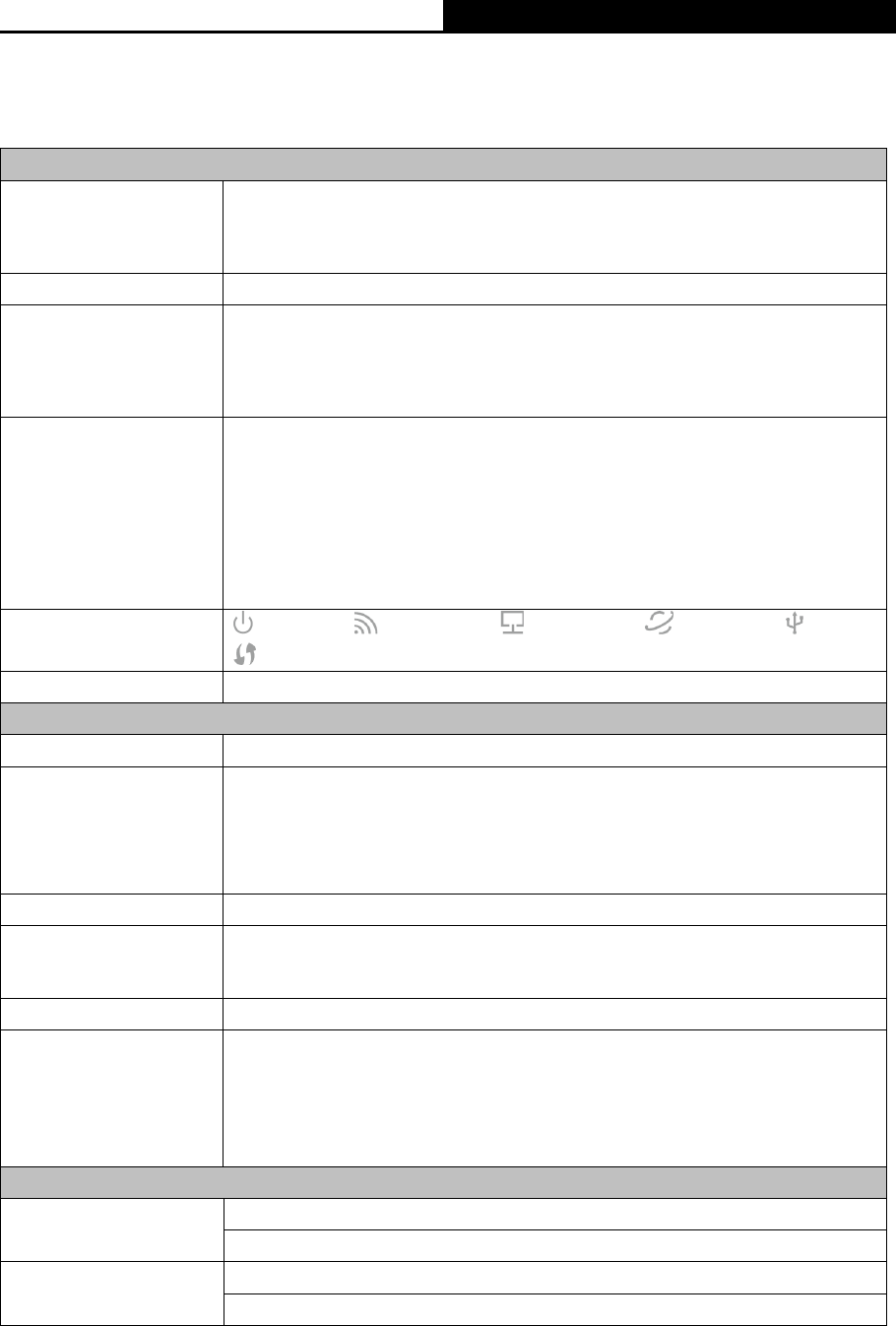
Archer C8
AC1750 Wireless Dual Band Gigabit Router
- 130 -
Appendix C: Specifications
General
Standards
IEEE 802.11ac, IEEE 802.11n, IEEE 802.11g, IEEE 802.11b, IEEE
802.11a, IEEE 802.11e, IEEE 802.11i, IEEE 802.1X, IEEE 802.3X,
IEEE 802.3, IEEE 802.3u, IEEE 802.3ab
Protocols TCP/IP, PPPoE, DHCP, ICMP, NAT, SNTP
Ports
1 10/100/1000M Auto-Negotiation Internet RJ45 port;
4 10/100/1000M Auto-Negotiation Ethernet RJ45 ports supporting
Auto MDI/MDIX;
2 USB ports supporting storage/FTP/Media/Print Server;
Cabling Type
10BASE-T: UTP category 3, 4, 5 cable (maximum 100m)
EIA/TIA-568 100Ω STP (maximum 100m)
100BASE-TX: UTP category 5, 5e cable (maximum 100m)
EIA/TIA-568 100Ω STP (maximum 100m)
1000BASE-TX: UTP category 5, 5e cable (maximum 100m)
EIA/TIA-568 100Ω STP (maximum 100m)
LEDs
(Power), (Wireless), (Ethernet), (Internet), (USB),
(WPS)
Safety & Emissions FCC, CE
Wireless
Frequency Band* 2.4GHz, 5GHz
Radio Data Rate
11b: 1/2/5.5/11Mbps
11a/g: 6/9/12/18/24/36/48/54Mbps
11n: up to 450Mbps
11ac: up to 1.3Gbps
Frequency Expansion DSSS (Direct Sequence Spread Spectrum)
Modulation
11ac: 256-QAM for OFDM
11n/g/a: QPSK,BPSK,16-QAM, 64-QAM for OFDM
11b: CCK,DQPSK,DBPSK
Security
WEP, WPA/WPA2, WPA2-PSK/WPA-PSK
Sensitivity
5G:
11a 6Mbps: -92dBm
11a 54Mbps: -74dBm
11ac HT20: -66dBm
11ac HT40: -62dBm
11ac HT80: -59dBm
2.4G:
11b 1M: -96dBm
11g 54M: -73dBm
11n HT20: -70dBm
11n HT40: -67dBm
Environmental and Physical
Temperature
Operating: 0
℃
to 40
℃
(32
℉
to 104
℉
)
Storage: -40
℃
to 70
℃
(-40
℉
to 158
℉
)
Humidity
Operating: 10% to 90% RH, Non-condensing
Storage: 5% to 90% RH, Non-condensing
* Only 2.412GHz~2.462GHz is allowed to be used in USA, which means only channel 1~11 is available for
American users to choose.


















